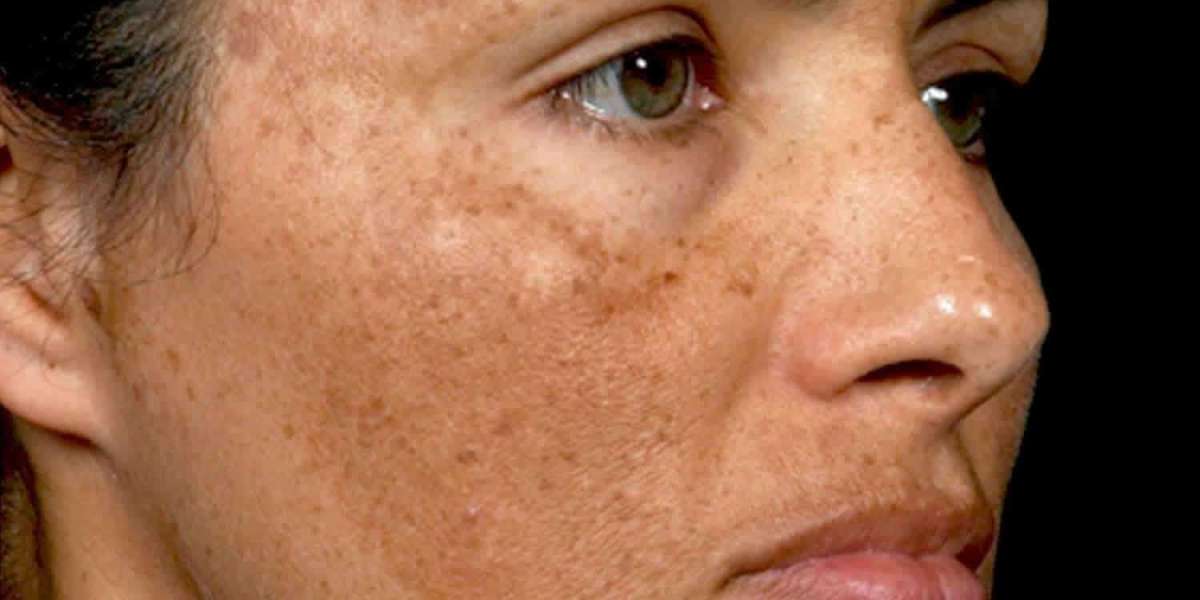Pigmentation is a common skin condition that causes dark patches or spots on the skin. While often harmless, it can affect self-confidence and appearance. Understanding its root cause is the first step toward effective treatment. For those seeking professional care, especially in Pakistan, advanced solutions like Hyperpigmentation Treatment in Islamabad are available to help manage and reduce uneven skin tone.
Understanding Pigmentation and Melanin
Pigmentation refers to the coloring of the skin, and melanin is the pigment responsible for that color. The amount of melanin your skin produces is primarily determined by genetics, but it can be influenced by various factors. An overproduction of melanin results in hyperpigmentation, which can appear as freckles, age spots, melasma, or post-inflammatory marks.
The Root Causes of Pigmentation
1. Sun Exposure
The most significant contributor to pigmentation is exposure to ultraviolet (UV) rays. When skin is exposed to the sun, it produces more melanin as a protective mechanism. Prolonged or unprotected exposure leads to sunspots or solar lentigines—commonly seen on the face, neck, and hands.
2. Hormonal Changes
Hormonal fluctuations, especially during pregnancy or while taking birth control pills, can trigger melasma—a form of pigmentation that appears as brown or gray patches, particularly on the face. This condition is more prevalent in women due to estrogen and progesterone sensitivity.
3. Inflammation or Skin Trauma
Any form of skin injury or inflammation, such as acne, eczema, or burns, can result in post-inflammatory hyperpigmentation (PIH). As the skin heals, it may leave behind dark spots due to increased melanin production in the affected area.
4. Genetics and Ethnicity
People with darker skin tones naturally produce more melanin and are more prone to pigmentation issues. Genetic predisposition can also increase one’s likelihood of developing certain pigmentation disorders.
5. Medications and Chemicals
Some medications, such as chemotherapy drugs, antibiotics, and certain topical treatments, may cause pigmentation as a side effect. Harsh skin products or those with allergens may also irritate the skin, leading to uneven pigmentation.
6. Aging
As we age, our skin’s ability to regenerate and repair diminishes. This leads to age spots or liver spots, which are a type of hyperpigmentation commonly found on sun-exposed areas of older adults.
How to Identify Pigmentation Early
Early detection is crucial for timely treatment. Common signs include:
Uneven skin tone
Dark patches or spots
Discoloration that persists beyond acne or injuries
Consulting a dermatologist ensures an accurate diagnosis and customized treatment plan.
Effective Treatments for Pigmentation
Various treatments can help lighten or remove pigmentation:
Topical creams (e.g., hydroquinone, retinoids, vitamin C)
Chemical peels
Laser therapies
Microneedling
Sun protection (SPF 30+ daily)
Treatment choice depends on the type, severity, and cause of pigmentation. For a tailored approach, consulting with specialists in pigmentation therapies is essential.
Those concerned about pigmentation and seeking expert care should explore the Cost of Hyperpigmentation Treatment in Islamabad to understand the available solutions and pricing based on individual needs.
Preventing Pigmentation: Best Practices
Preventing pigmentation starts with proactive skincare:
Use broad-spectrum sunscreen daily
Avoid peak sun hours
Wear protective clothing and hats
Incorporate antioxidants in your skincare routine
Avoid picking at acne or wounds
A consistent and preventive skincare regimen can help manage and reduce the chances of pigmentation.
Conclusion: When to Seek Professional Help
While some forms of pigmentation are mild and fade over time, persistent or worsening discoloration should be evaluated by a professional. Skin experts can determine the root cause and recommend suitable treatments based on your skin type and condition. If you’re looking for expert advice and reliable treatments, consider visiting Royal Cosmetic Surgery PK, a trusted name in cosmetic dermatology known for offering state-of-the-art care and proven results.




